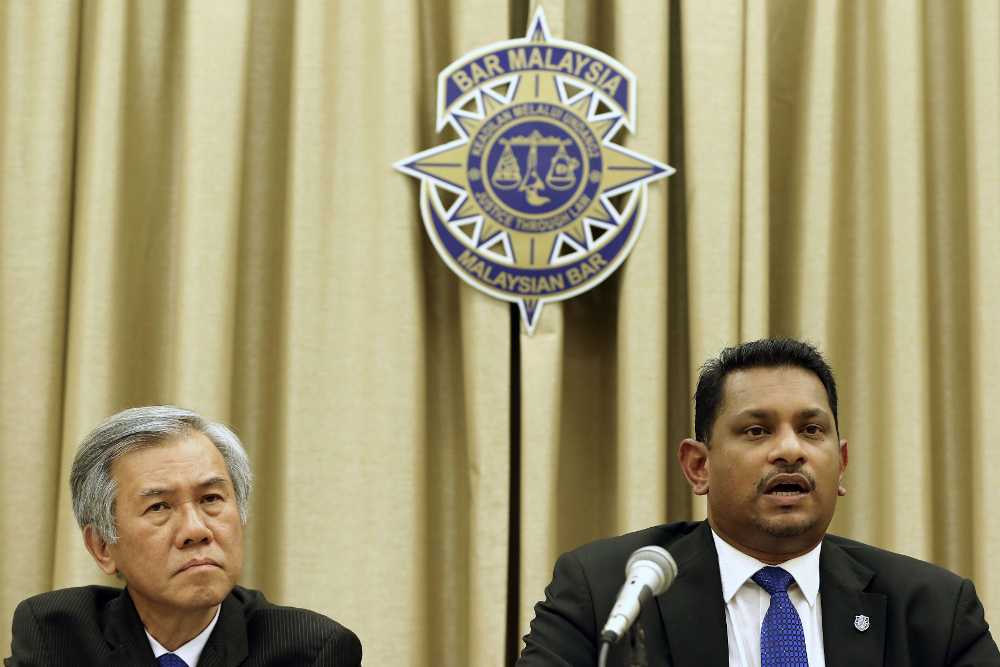KUALA LUMPUR, Feb 21 — Attorney General Tan Sri Tommy Thomas must explain his initial decision to press terrorism charges against 12 Malaysians who purportedly had links to the now-defunct group Liberation Tigers of Tamil Eelam (LTTE), the Malaysian Bar said today.
The group representing lawyers in the peninsula said clarity is necessary after Thomas’ announcement earlier today that he was discontinuing prosecution against the 12.
The Bar noted that the 12 had been detained and refused bail under Security Offences (Special Measures) Act 2012, a preventive security law it described as “draconian” and an “affront to natural justice”.
“The 12 were charged and denied bail since the day of their arrest.
“What will be lingering in the minds of the general public was why they were charged in the first place,” it said in a statement this evening.
The Bar added that it was disheartening for Malaysians to know they can be arrested, charged and locked up without bail for a prolonged period on charges when the prosecution’s chances of conviction were thin.
It questioned the use of Sosma, suggesting the provisions may have been abused and called on the government to repeal the law.
“Draconian laws have no place in a democratic nation, and are an affront to the principles of natural justice.
“The Malaysian Bar calls upon the Government to demonstrate full commitment to its election manifesto by abolishing such oppressive laws without further delay,” it added.
Twelve Malaysians, including two DAP state lawmakers, were charged under Section 130 of the Penal Code with supporting terrorism for their alleged links to the LTTE and have been held at the Sungai Buloh Prison since.
They are Melaka state executive councillor G. Saminathan, Negri Sembilan assemblyman P. Gunasekaran, corporate CEO S. Chandru, V. Balamurugan, S. Teran, A. Kalaimughilan, S. Arivainthan, S. Thanagaraj, M. Pumugan, R. Sundram, V. Suresh Kumar and B. Subramaniam.
In his statement this afternoon, Thomas said the decision[a] to drop the case was made under his constitutional discretionary powers after finding insufficient evidence to back its prosecution that would lead to a “realistic prospect of conviction”.
Under the law, they could have been sentenced to jail for life (which is a maximum of 30 years), or a fine and can have any of their properties used in the offence confiscated, if trial had continued and they were convicted.



















